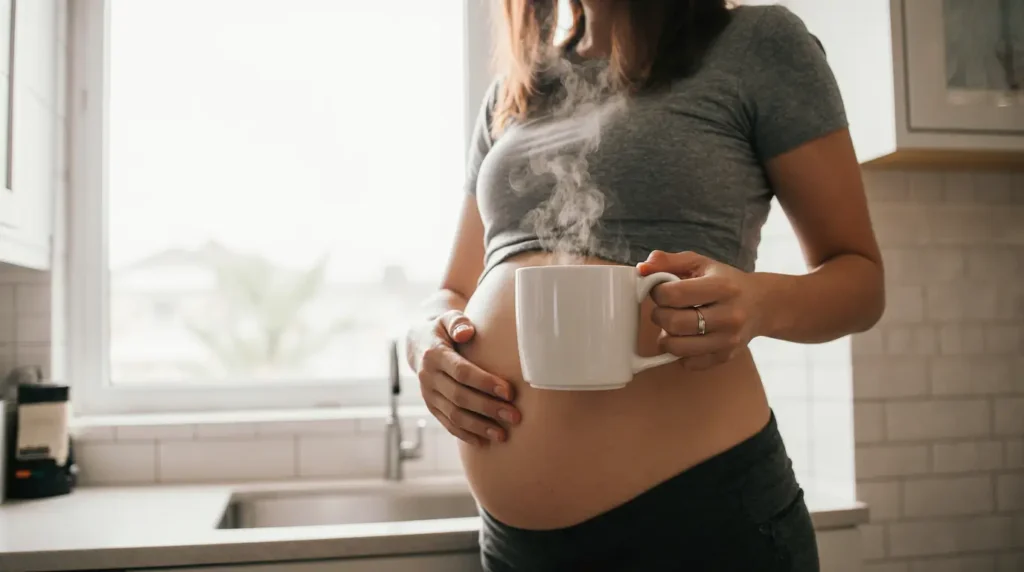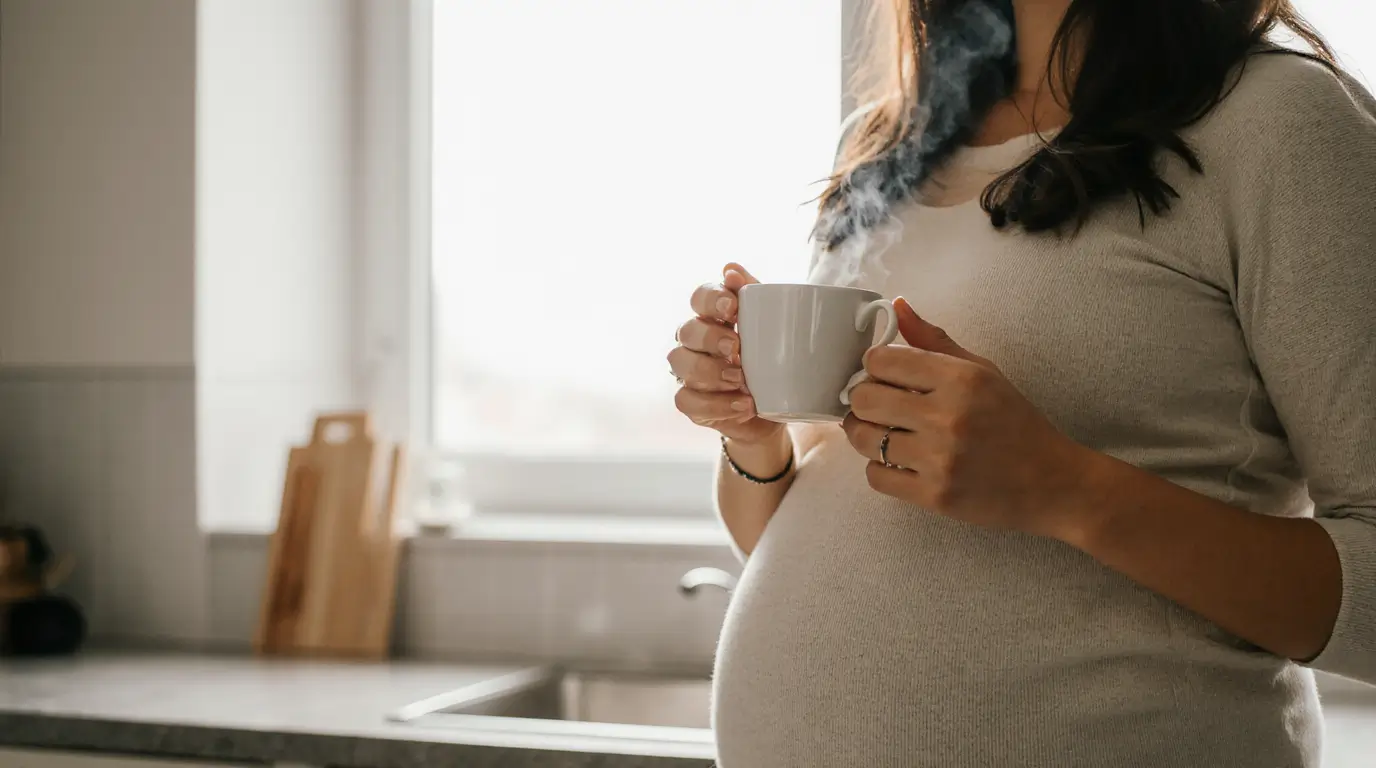Can You Drink Coffee While Pregnant? 3 Powerful Facts To Keep Baby Safe
Pregnancy comes with a whirlwind of questions — and if you’re a coffee lover, one of the first might be: Can you drink coffee while pregnant? You’re not alone in wondering. The good news? You don’t have to give up your favorite brew completely — but there’s more to the story than a simple yes or no.
Let’s dive into the truth behind caffeine during pregnancy and how you can enjoy your coffee safely while protecting your baby’s development.
Table of Contents
1. Can You Drink Coffee While Pregnant? Understanding the Risks
Your morning coffee might feel like a lifeline, especially when pregnancy fatigue hits hard. But when it comes to caffeine and pregnancy, there are essential facts you can’t ignore.
Caffeine and Fetal Development
Here’s the first powerful fact: caffeine does cross the placenta. Your growing baby doesn’t yet have the enzymes to metabolize it, so caffeine lingers longer in their system. Studies show that high levels of caffeine can affect fetal growth, leading to lower birth weight or developmental delays in some cases.
In simple terms, your baby feels the caffeine too — and not always in a good way.
Medical authorities like the World Health Organization (WHO) and the American College of Obstetricians and Gynecologists (ACOG) agree: moderation is key. Limiting caffeine is not about fear — it’s about making informed decisions.

Miscarriage and High Caffeine Intake
Let’s address what many expectant mothers worry about: the risk of miscarriage. Several studies, including one published in The American Journal of Obstetrics and Gynecology, have linked high caffeine consumption (especially above 300 mg/day) with an increased risk of miscarriage — particularly in the first trimester.
That doesn’t mean coffee causes miscarriage, but it does suggest that exceeding safe levels isn’t worth the risk. OB-GYNs typically recommend staying under 200 mg of caffeine per day.
Pro Tip: One small cup of brewed coffee contains around 95 mg of caffeine — so two small cups daily is generally considered safe.
Common Myths About Coffee in Pregnancy
Let’s bust a few myths you’ve probably heard:
❌ Myth: “Decaf is totally caffeine-free”
Even decaf contains trace amounts (2–5 mg per cup), which can add up over multiple cups.
❌ Myth: “One cup a day is dangerous”
Not true — in fact, controlled coffee intake may be safe under the 200 mg guideline.
❌ Myth: “All coffee is the same”
Caffeine levels vary based on roast, brew method, and serving size. You need to know what’s in your cup.
2. Safe Coffee Consumption Guidelines for Pregnant Women
If you’re wondering how to keep your coffee habit without compromising your baby’s well-being, this section is for you. These guidelines are backed by experts and help you sip safely with confidence.
Recommended Caffeine Limits by Experts
According to ACOG and WHO, the daily recommended caffeine limit during pregnancy is no more than 200 mg — about one 12 oz cup of coffee, depending on the brew.
Some women metabolize caffeine slower during pregnancy, especially in the second and third trimesters. That means even smaller amounts could linger longer in your bloodstream.
Tips for Calculating Caffeine Intake:
- Read nutrition labels on store-bought coffee drinks.
- Check café websites for caffeine content (e.g., Starbucks, Dunkin’).
- Don’t forget hidden caffeine in chocolate, tea, or energy drinks.
Coffee Types and Caffeine Levels
Here’s a handy table to help you choose the right coffee:
| Coffee Type | Serving Size | Caffeine (Approx.) |
|---|---|---|
| Brewed Coffee | 8 oz | 95 mg |
| Espresso (single shot) | 1 oz | 64 mg |
| Instant Coffee | 8 oz | 60 mg |
| Decaf Coffee | 8 oz | 2–5 mg |
| Cold Brew (Starbucks Tall) | 12 oz | 150–200 mg |
💡 Remember: The roast doesn’t matter as much as the serving size and brewing method. Cold brews and espresso-based drinks are often stronger than you think.

Signs You May Be Overdoing It
Even if you’re staying under the limit, your body may signal that it’s time to cut back:
- 💓 Racing heart rate
- 💤 Trouble sleeping
- 😰 Increased anxiety
- 😵 Jitteriness or lightheadedness
If you’re noticing any of these signs, it may be time to rethink your caffeine habits.
✔️ Simple Tips for Staying Safe:
- Use a caffeine-tracking app like Caffeine Informer
- Stick to one coffee beverage per day
- Alternate between regular and decaf
- Hydrate with water before and after coffee
3. Healthier Alternatives and Smarter Coffee Choices
Can’t imagine life without your warm mug? Don’t worry — you’ve got plenty of options that satisfy the craving and support a healthy pregnancy.
Best Coffee Substitutes During Pregnancy
Sometimes the ritual matters more than the caffeine itself. If you love holding that morning mug, try these non-caffeinated alternatives:
- 🍵 Herbal Teas – Rooibos, ginger, peppermint (avoid those with licorice root)
- ☕ Chicory Root Coffee – Roasted, earthy, and caffeine-free
- 🥛 Warm Milk with Honey & Cinnamon – Comforting and calming
Always check with your healthcare provider before trying herbal teas, as some may not be pregnancy-safe.
Choosing the Right Coffee Option
If you’re still craving the taste of coffee, consider these smarter choices:
- Decaf Coffee – Choose Swiss water–processed decaf to avoid chemical solvents
- Half-Caf Blends – A mix of regular and decaf to cut caffeine in half
- Light Roast vs. Dark Roast – Contrary to popular belief, light roasts often have more caffeine
☑️ Coffee Hacks for Pregnancy:
- Brew weaker coffee or use more milk
- Choose smaller cups (6 oz instead of 12 oz)
- Limit add-ins like syrups that add sugar and calories
Lifestyle Hacks for Energy Without Coffee
Caffeine isn’t your only option for surviving the day. Here’s how you can boost energy naturally during pregnancy:
- 💧 Hydration – Even mild dehydration leads to fatigue
- 🍽️ Frequent, balanced meals – Low blood sugar causes dips in energy
- 🧘 Prenatal yoga – Light movement energizes the body without stress
- 😴 Power naps – 15 to 20 minutes can be more effective than caffeine
- 🌿 Get outside – Sunlight boosts serotonin and mood
Conclusion: You Can Enjoy Coffee and Keep Baby Safe
Let’s recap the 3 powerful facts:
- Caffeine does impact your baby — so staying informed is essential
- Safe limits exist — and you can enjoy your brew within those guidelines
- Smarter choices and alternatives — give you freedom without fear
Pregnancy doesn’t mean giving up every comfort. With knowledge and awareness, you can sip smarter, feel better, and focus on what truly matters — a healthy, happy pregnancy.
✅ Your Turn: Let’s Talk!
Did you adjust your coffee habits during pregnancy? Do you have a favorite caffeine-free swap?
👇 Drop a comment below and share your experience — your story might help another mom-to-be!
Or pin this guide to your pregnancy board on Pinterest so you can revisit it anytime you need a reminder!







